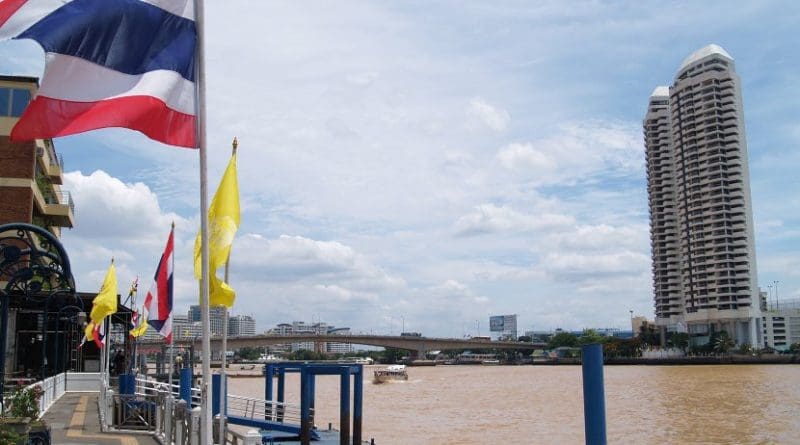Thai General Election 2019: Regime Change Or Consolidation? – Analysis
By RSIS
Thai Prime Minister Prayut Chan-o-Cha has announced that the general election will be held by February 2019 if three conditions are met. Why is Prayut demanding three conditions and to what extent will the GE result in political change or consolidation for the incumbent Thai junta?
By Antonio L. Rappa*
The Royal Thai Armed Forces has played a central role in all previous general elections (GEs) since the 1932 coup. RTAF Supreme Commander Thanchaiyan Srisuwan reiterated the central role of the army and continues to support the political consolidation and public policies under Prime Minister Prayut Chan-o-Cha. While the self-appointed prime minister announced that he is not interested in retaining his position, the new pro-military Constitution virtually guarantees that he will be re-elected PM as long as 376 out of 750 Members of Parliament (MP) vote for him in the lower house election slated for early 2019.
Prayut already controls the upper house given the fact that 200 senators had to be pre-approved by the junta. Prayut and his deputy Prawit Wongsuwan have sufficient MPs and senators to form a new political party. Without ruling out his own political future, the PM believes in three conditions for the GE to take place; with the caveat that the military will not tolerate any public demonstrations and political violence that is likely to occur once the election dates are fixed.
Military’s Three Conditions
The first condition is that all political parties have to support the role and function of the National Peace Keeping Council (NPKO) of which the prime minister is the Chairman. This situation is entrenched by the new pro-military Constitution that virtually guarantees that Prayut and his Cabinet have ministerial positions regardless of the political party that wins. However, the glitch is that a winning party with more than 375 MPs will be able to overturn the NPKO/junta’s stranglehold over the government and people of Thailand.
The second condition laid out by the Thai PM is that the new election law that was changed in January 2018 will ensure that the political parties have sufficient preparation time. But both the Puea Thai and Democrat party spokesmen have argued that the law merely gives the NPKO more time to entrench its political power bases in Bangkok and other major cities of the kingdom.
The amended election law is perceived by political scientists from Chulalongkorn University and Thammasat University to ensure that the NPKO and its network of supporters remain in a custodial position before, during and after the GE in 2019.
Government-Military Relationship Still Strong
The third condition that Prayut hinted at in 2017 and is expected to reiterate in May/June 2018 is a fair and balanced conduct of the general election. The PM’s genuineness was demonstrated in March when the Election Commission (EC) received 34 applications for political parties that seek approval to take part in the GE, the first time that the EC has been empowered since Prayut overthrew the democratically-elected Yingluck Shinawatra government in 2014 over the multi-billion baht rice-pledging scandal.
A professor from Rangsit University told the press that the relationship between the government and the military remains very strong.
A positive sign that democracy is alive is the participation of Thai Summit Group CEO Thanathorn Juangroongruangkit and Thammasat University law professor Piyabutr Sangkanokkul. Their Future Forward party criticised the coups in 2006 and 2014 military coups without directly mentioning Prayut.
Two Possible Scenarios
The consequences for Thai voters are clear. Firstly, there will be a clear win in the direction of the NPKO and the political party that it will back. Secondly, the likelihood of a military-supported putsch will only take place if the military fails to win a majority vote. Therefore, two scenarios are likely: the first is the consolidation of political power by the incumbents and the second the transformational changes to the military-backed junta to rejuvenate the old guard under Prayut.
A third consequence that is very likely is that the balance of power will continue to shift toward the military leaders and away from the people. Nevertheless regardless of how powerful the NPKO/junta is today, they will still need the endorsement of Rama X, King Maha Vajiralongkorn to hold the election.
*Antonio L. Rappa is a Visiting Researcher at the Institute for Strategic and International Studies (ISIS) Chulalongkorn University, Thailand and Associate Professor and Head, Management and Security Studies, School of Business, Singapore University of Social Sciences (SUSS) . He was previously an Adjunct Senior Fellow with the S. Rajaratnam School of International Studies (RSIS), Nanyang Technological University, Singapore and consults in Counterterrorism and Political Violence in Southeast Asia.

